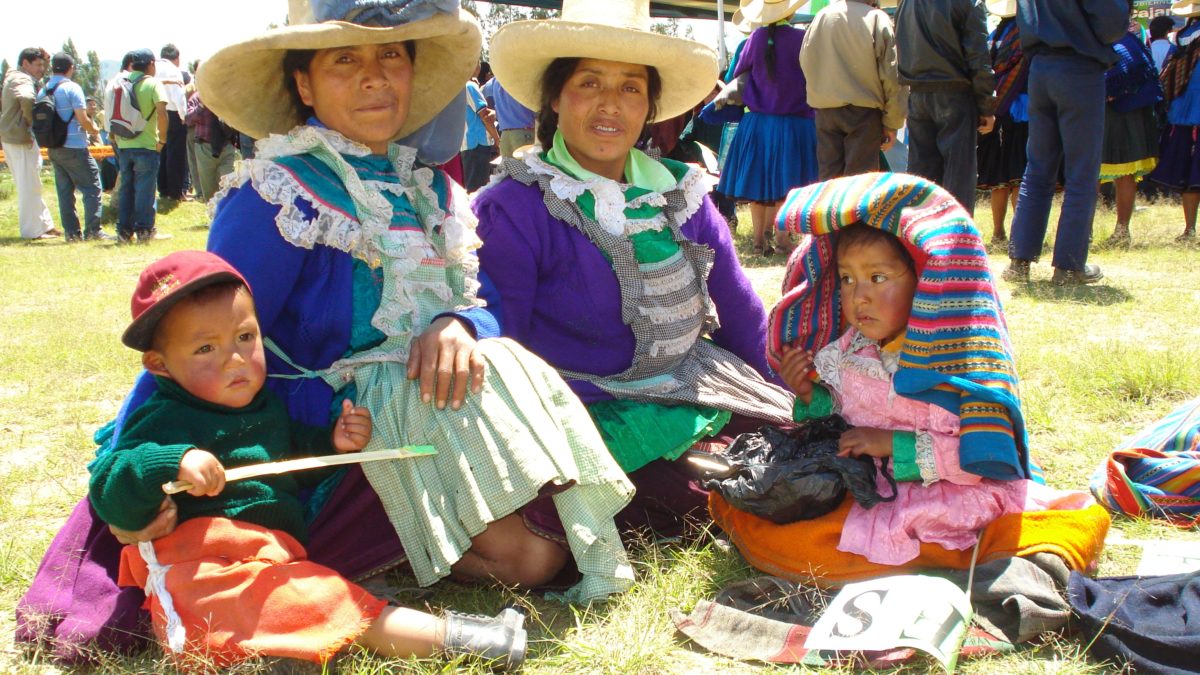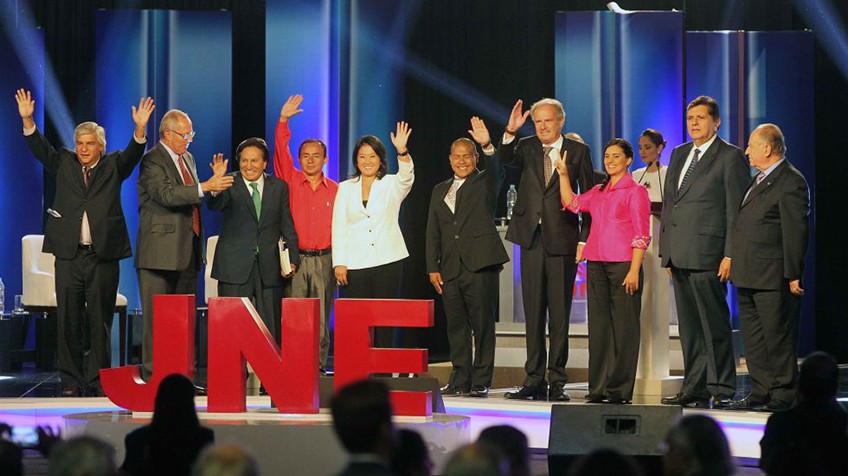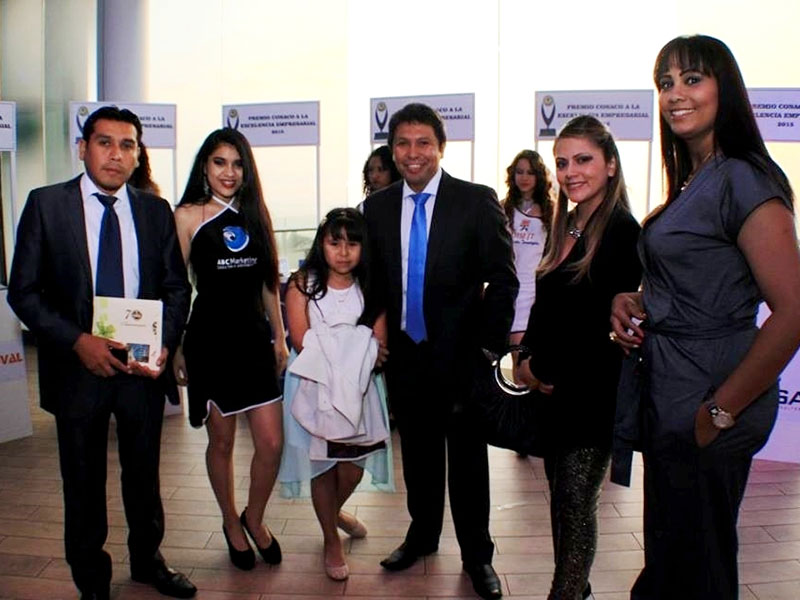ANALYSIS OF MINING AND ITS RELATIONSHIP WITH COMMUNITIES

ANALYSIS OF MINING AND ITS RELATIONSHIP WITH COMMUNITIES
METHODOLOGY:
CUALITATIVE: Focus Gruops and In-Depth Interviews
QUANTATIVE: Personal (Face-to-Face) Surveys
THEMES STUDIED:
General appreciation of the present situation of the communities.
- Leadership and social organizations existing in the communities.
- Relationship between the social organizations and the communities with the private company.
- Existing mechanisms in the relationship with private enterprise.
- Improvements in the relationship with private enterprise.
- Work of social organizations and participation of community leaders.
- The Future of Communities.
- The young people of the communities.
- Women’s participation in social activities in the communities.
CONCLUSIONS
- There are different types of populations (segments) in the margin of influence, each with its own reality. It is influenced by height, distance, education, state support and private enterprise.
- The common denominator is the longing for development and well-being of their community, as well as poverty and lack of public services.
- There is a lack of information, of communication channels between the populations under study, the State and private companies on issues such as: the environment, pollution, politics, economy, as well as the role, duties and obligations of each of the entities mentioned above.
- Levels of education are scarce, influencing manipulation, grandparents, distrust and above all bad relations and negotiations.
- Paradigms have been created among them, that Mining has the obligation to provide support in all aspects to the populations. Acceptance and approval of mining is divided. Those in favor are those who have benefited materially from some mining. There has been and still is a disorderly and unplanned link with the populations, prevailing material support and infrastructure, there is a perceived lack of awareness and sensitization to the populations since the arrival of mining.
- The outbreak of conflicts is latent and unpredictable, at any moment in the populations most affected by the contamination, niches of resistance can be created that can infect more affected communities and large blocks can be formed against mining.
- There are needs, more than materials, there is a lack of human development, the populations live in a habitual circle without looking beyond, there is much distance with this globalized, changing and competitive world.
- A large segment of adults is reluctant to these changes and to the new urban and current lifestyles, millenary customs are maintained and lead to a delay, conformism, without perspective or vision for the future.
- What is clear is that youth is hope, the dreams of parents are still limited, they want to see their children as workers, machinists, artisans, farmers (trades), lacking a broader vision.
- The capital city of the Region is the closest to its achievements, there is no information of other careers (new and modern) apart from traditions, development sees it distant, they are aware of discrimination, there is no motivation and one perceives self-esteem damaged in time. A disinformation of the capital they have and the ways to start a business, a lack of entrepreneurial education. Only the most daring and daring manage to reach the city and fulfill this goal. There is no unity in many of the populations, internal conflicts that influence their external relations. A lack of training and knowledge that limit them and make them easy prey for politicians, swindlers and ill-intentioned people.
- The absence of the State and other external agents such as NGOs and the church is notorious and regrettable. There is a contradiction, the Mining Companies have NGOs and support others in projects in different fields; even so the support, the social good call to the different populations with influence is not perceived. The contradiction is that there is so much need not only material (works such as posts, schools, roads, highways, others) but also human need, illiteracy, lack of knowledge in the development of social projects, lack of motivation, damaged self-esteem, self-sustainable reproductive workshops, and there is no presence of any NGO, be it mining or the one against it. Many boast of defending the populations from contamination, receive large funds and the question remains: what do they do, what benefit do they provide to these communities?
- Agriculture and cattle ranching are the predominant activities in the majority, there is concern and we would even say the pain in the people to know that little by little will disappear, they know that a short and medium term the land (la pacha) will change, will dry up and will become an arid land, as has happened in other nearby areas. The contamination is latent and growing, many are limited by the lack of support from the State for those who qualify as treacherous in making decisions without their participation and respect for their position. In many cases they find themselves adrift to a destiny that is not promising.
- Mining is qualified as invasive and abusive because of the little consideration it has had with many hamlets, which it has not supported or approached, knowing that they are also zones of influence.
- There are emotions found in this reality, where the most affected are the populations that are not in the circle of support for mining. They have also been indirectly affected by environmental contamination and they demand to a lesser and greater extent from the Mining and the State a Stop Now! To the absence of their waters, to the contamination of irrigation and drinking water, to the diseases that are appearing in their people, their animals and pastures. He feels that mining has brought development to the country, but they have not, only a few, a few are the beneficiaries, on the other hand the majority of the populations are the most affected and at the same time the most forgotten.
- But they are also aware of their limitations as a community and as a person, politics, bad politicians have also influenced disintegration, internal conflicts, disputes, discrimination within. They are also aware that many will stay the same and some will struggle to improve their economy. It is only the youth to whom all the interviewees agree that this is the segment that at least Mining and the State should support, here or there where they are, they are the pride and soul of each community.
RECOMMENDATIONS
- Carry out a mapping, a classification of the communities, highlighting their most urgent needs at a material level but above all at a human level.
- Rethink if you have a welfare and social program, it is necessary a greater presence, a greater approach, better contact.
- Do not offer what cannot be given, but in the possibilities with the support of the population, which in general are predisposed to teamwork.
- Direct these actions to the youth segment.
- Make the adult segment aware by means of closer and friendlier communication strategies; it is not necessary to have a radio and a TV channel. There are creative ways to raise awareness, to create psychosocials that can break the mental paradigms created by disinformation, by excessive arrogance, by discrimination, by the human resource with shortcomings to relate to and respect other idiosyncrasies.
- To articulate educational entities with these populations, such as? There are many good ideas, projects and dreams in these populations that, due to the lack of knowledge and technical assistance, do not take advantage of the different sources of financing (the State, NGOs, entities, donations, financial sources in the world, others), which are wasted, returned, due to the lack of good support for a project.
- The articulation will unite or bring educational entities, be they public or private universities, technical institutes and Ceos, to the populations that need knowledge. It is necessary to merge these two elements, distanced by bad policies or simply by lack of initiative. Each element has to contribute to the development of a village, a populated center, a district, a province, a department, a nation.
- This is where the need arises to create strategic alliances between the Mining Companies, the State, the Universities, the political authorities and the leaders of the populations that demand knowledge and technology.
- An aggressive campaign of sensitization, knowledge and training, first making diagnoses in each population and proposing a solution to the existing demands (field of human development). Necessary and demanded themes that are perceived in the study:
- Role, duties, obligation of the State, Mining and Population.
- Self-esteem against Ego. Leadership. Good Habits (For young people and women).
- The offer of professional and technical careers.
- Peru, Mining Regions and Globalization. Advances.
- Productive workshops in: breeding of small animals, crafts, care of land and crops.
- Design and execution of investment projects. Self-sustainability.
- How to create your own business from your resources.
- Financial institutions: Banks, municipal savings banks, rural savings banks, cooperatives, NGOs, Edpymes, others. Benefits and advantages.
- Formalization of a company. Culture and business philosophy.
- Human relations, conflicts and solutions
-
- The intense participation of NGOs, constantly advising these areas of influence, this is “supposed” to be allocated significant funds for development projects, but it is incongruous that disbursements do not reach these populations, those most affected by mining, and reach areas, districts and provinces far from conflicts or only the pockets of a few.
- It is necessary to evaluate the areas constantly, a constant feek back by means of quantitative and qualitative studies that allow to measure the different variables of perception and degree of approval of the advances of the Mining. At the same time, the collected information will allow to quickly redirect the communication strategies, which to date have not reached and created impact in both the user population (rural) and the urban population.
- The growth and expansion of mining, is inevitable, the growth of pollution, if not take measures to improve the environment and investment as they do in other parts of the world, will cause deep damage to the environment, nature, is projected depredation of fauna and flora in the area, influencing the disappearance of agriculture and livestock.
- For these reasons, it is necessary to sensitize already, “thinking negatively” to the populations with greater mining influence to migrate to the city, this is a change that many are remakes but that will be necessary for the sake of their development and welfare. This is complemented by the evolution that these populations must accept, an evolution with a change of lifestyle, with quality public services, with good education, with access to everything.
- These changes as all in the short or medium term, we work little by little, through psychology, through discovering those hidden needs that we all have, the line in advertising, in communications and in the impact we want to have to avoid conflict and resistance, is persuasion by means of a creative and concise advertising strategy that Mining will have to apply if it does not want the seed of conflict to bear its fruit soon.
- To conclude from our external point of view, the Mining Companies must risk more and must strategically, if you do not want conflicts, resistance, if you do not want to invest millions of millions in cleaning the waters; you must cover those hidden needs in the populations in a friendly way and by means of a communication and publicity closer to the real users. It must indirectly, unconsciously motivate the populations to a lifestyle change where Mining is the support, the entity that motivates these mental changes.
- Not only the ex-owners must have that privilege, perhaps they have that advantage which is material, money and infrastructure works, but I would like it to be clear that this is not everything in life, people especially the humble and poorest, are very grateful to the people who come with a simple and good gesture of selfless support that will help them in their growth, that! these populations perceive it, feel it and it is more, recognize it and value it.
- Many times sharing a fruit, that simple sharing is greater than arrogance and giving money or buying a conscience.
ABC MARKETING




